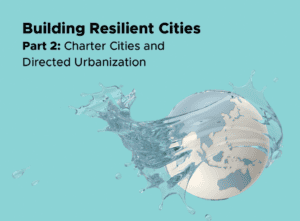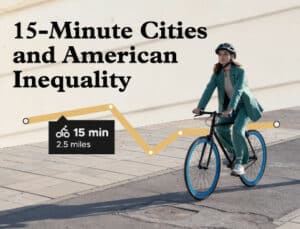
Building Resilient Cities, Part 2: Directed Urbanization
This blog series will explore the critical role of charter cities in fostering climate-resilient development across the Global South.
Connect with us

Research Intern
Almuzn holds a bachelor’s degree in architecture from the University of Khartoum and now works as an urban researcher. She is interested in research projects that address questions about the rights of the city, decentralized governance, and sustainable development. For the past three years, Almuzn worked on researching urban displacement conditions, city-life realities, and land allocation policies in Sudan, and produced podcasts, policy briefs, and open-access background notes.

This blog series will explore the critical role of charter cities in fostering climate-resilient development across the Global South.

New Research Hub To Focus on Educating the African City Builders, Urban Planners, and Municipal Leaders of Tomorrow Using Innovative Approaches to Urban Development. March, 2024 The Charter Cities Institute

New Research Hub Focused on Educating the African City Builders, Urban Planners, and Municipal Leaders of Tomorrow using Innovative Approaches to Urban Development. March, 2024 The Charter Cities Institute (CCI),

Our new blog series called ‘Student Diaries: Perspectives on Urbanization & Development’ aims to amplify student voices on urbanization and development issues in Africa. Our first blog is by Subilo Banda, a student at the University of Zambia, discussing an alternative avenue to fostering economic growth in developing nations.

Each month, the CCI team selects a new book to read and discuss together. Our book club selections cover a wide range of topics that are relevant to charter cities, but they are most often related to development, urban issues, and governance. In this ongoing series, reviewers will offer summaries of the books we’ve read and share some of the highlights from our discussions.

Over the past few years, the 15-minute city has emerged as a contentious urban planning paradigm. The concept, which proposes organizing cities into clusters of dense neighborhoods where all daily needs can be reach within a 15-minute walk or bike ride, is criticized as a segregationist and impractical approach to urbanism. Its detractors fear that it will worsen social inequality and reduce economic benefits. In this paper, we challenge these criticisms. We argue that 15-minute cities are an effective urban policy to improve social equality and spur economic development. We conceptually argue that 15-minute cities embody consensus policies among urban planner, and therefore, they should not be treated skeptically. We also discuss how 15-minute cities are beneficial to low-income residents. To illustrate our arguments, we qualitatively compare New York City and Washington, DC’s impoverished neighborhoods. We show that the relatively more walkable neighborhoods of NYC are better for the poor than DC’s relatively less walkable neighborhoods.
Sign up for our newsletter to receive the latest updates and our published research papers delivered right to your inbox.
The Charter Cities Institute is a 501(c)3 nonprofit dedicated to empowering new cities with better governance to lift tens of millions of people out of poverty.
© 2024 Charter Cities Institute. All rights reserved.